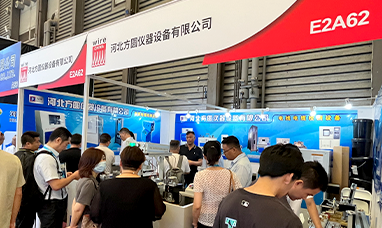Resistance Measurement Devices for Accurate Electrical Inspections and Testing Solutions
Resistance Measuring Instruments Essential Tools for Accurate Electrical Assessment
In the realm of electrical engineering and electronics, resistance measuring instruments play a crucial role in assessing the performance and integrity of various components. Accurate measurements of resistance are essential for diagnosing issues, ensuring safety, and optimizing the efficiency of electrical circuits.
Resistance is the opposition to the flow of electric current, measured in ohms (Ω). The primary instruments used for measuring resistance include ohmmeters, multimeters, and specialized resistance testers. Each of these devices serves its purpose while ensuring precision and reliability.
An ohmmeter is specifically designed to measure resistance and provides direct readings. It operates by applying a known voltage across a resistor and measuring the resulting current, allowing for the calculation of resistance using Ohm's Law (R = V/I). Ohmmeters can be standalone devices or integrated into multimeters, which combine multiple measurement functions—voltage, current, and resistance—into a single tool. This versatility makes multimeters popular among both professionals and DIY enthusiasts.
resistance measuring instrument

Specialized resistance testers, often referred to as micro-ohmmeters or megohmmeters, are used for more specific applications. Micro-ohmmeters measure very low resistance values, which is critical for assessing connections in power systems and for ensuring the integrity of electrical joints. On the other hand, megohmeters are used for high-resistance measurements, typically in insulation testing, assessing the safety and reliability of electrical insulation materials.
When selecting a resistance measuring instrument, factors such as measurement range, accuracy, and features must be considered. Some advanced models come equipped with data logging capabilities, allowing users to record and analyze resistance changes over time. This feature is particularly useful in preventive maintenance, helping to identify potential failures before they become significant issues.
In industrial settings, the importance of correctly measuring resistance cannot be overstated. Inadequate measurements can lead to equipment failures, increased energy losses, and potentially hazardous situations. As technology continues to advance, the development of more sophisticated resistance measuring instruments allows for greater precision and ease of use.
In conclusion, resistance measuring instruments are indispensable tools in the field of electrical engineering. By providing accurate resistance measurements, they play a vital role in maintaining the safety and efficiency of electrical systems. Whether for routine maintenance, troubleshooting, or research, these instruments are essential in ensuring the smooth operation of electrical components and systems.
-
Why the Conductor Resistance Constant Temperature Measurement Machine Redefines Precision
NewsJun.20,2025
-
Reliable Testing Starts Here: Why the High Insulation Resistance Measuring Instrument Is a Must-Have
NewsJun.20,2025
-
Flexible Cable Flexing Test Equipment: The Precision Standard for Cable Durability and Performance Testing
NewsJun.20,2025
-
Digital Measurement Projector: Precision Visualization for Modern Manufacturing
NewsJun.20,2025
-
Computer Control Electronic Tensile Tester: Precision and Power for the Modern Metal Industry
NewsJun.20,2025
-
Cable Spark Tester: Your Ultimate Insulation Assurance for Wire and Cable Testing
NewsJun.20,2025
 Copyright © 2025 Hebei Fangyuan Instrument & Equipment Co.,Ltd. All Rights Reserved. Sitemap | Privacy Policy
Copyright © 2025 Hebei Fangyuan Instrument & Equipment Co.,Ltd. All Rights Reserved. Sitemap | Privacy Policy
